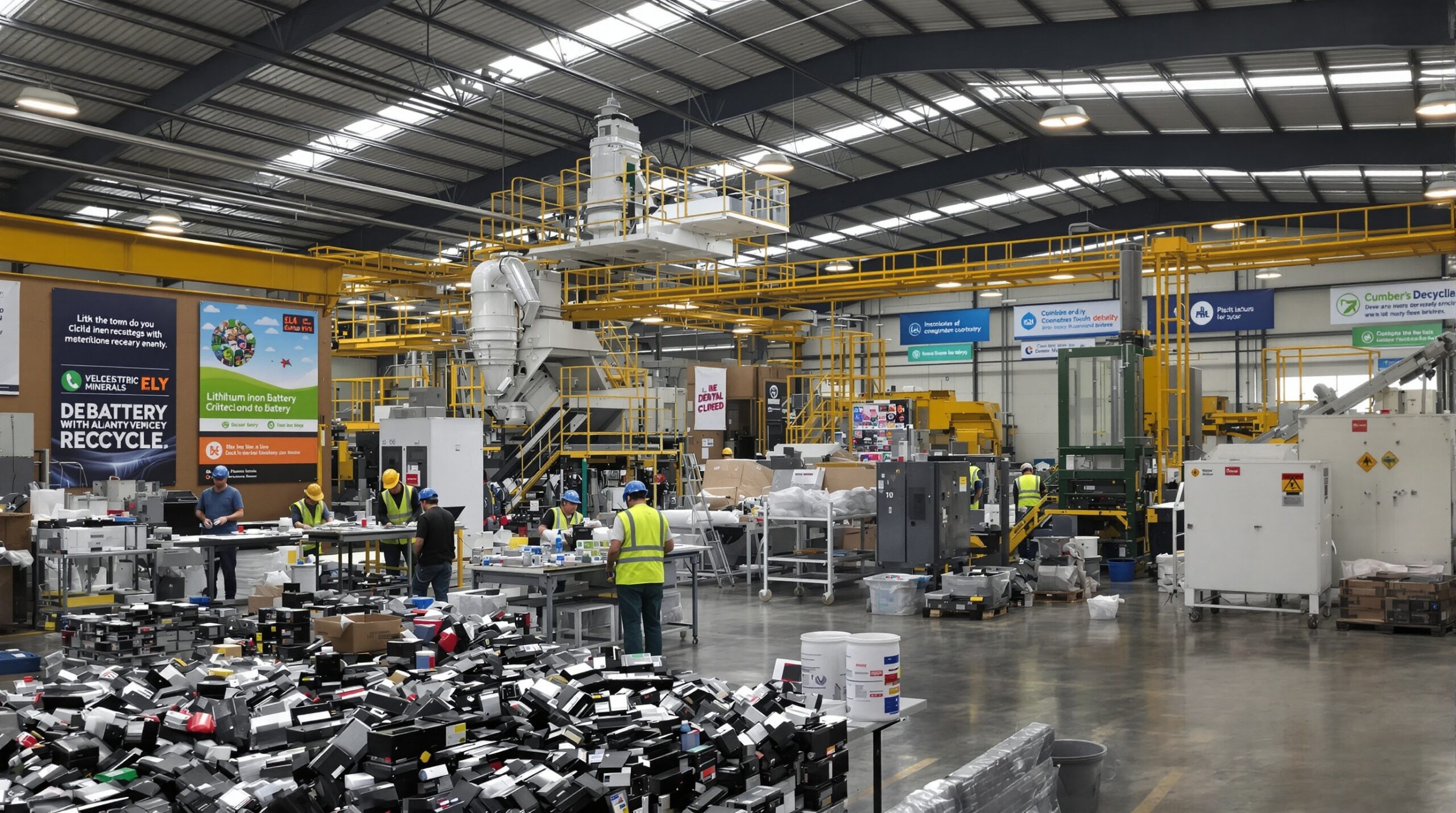Surging demand for electric vehicles (EVs) has triggered a parallel need for critical minerals like lithium, nickel, and cobalt. These materials form the backbone of modern lithium-ion batteries, powering everything from compact cars to commercial delivery vans. As automakers race to electrify their fleets, the pressure to secure reliable raw material supplies continues to mount. Battery recyclers now play a pivotal role in stabilizing the EV supply chain.
Global EV Market Drives Demand for Critical Minerals
Major automakers commit billions of dollars toward electrification. By 2030, BloombergNEF predicts tens of millions of EVs will hit global roads every year. These vehicles depend on batteries that consume enormous volumes of minerals, sourced almost exclusively from mines. Raw material extraction faces environmental, geopolitical, and economic challenges. With few new mines coming online, fears of supply bottlenecks keep automakers on edge.
Bottlenecks and Volatility in Mineral Markets
Cobalt, nickel, and lithium prices have experienced dramatic swings. Geopolitical instability in supplier nations can disrupt flows overnight. For example, much of the world’s cobalt originates from the Democratic Republic of Congo, a region often beset by conflict. Lithium supplies are tightly clustered in Australia, China, and South America. Supply chain hiccups raise costs and threaten production schedules for automakers globally.
Battery Recycling Emerges as a Solution
Battery recycling companies now offer a practical method to gently ease these resource challenges. By collecting spent batteries from EVs, electronics, and industrial systems, recyclers harvest valuable materials for reuse. Recycling not only reduces dependence on primary mining, it also helps control costs and ensures more predictable mineral streams. This process aligns with environmental ambitions by cutting mining waste and minimizing greenhouse gas emissions.
How Battery Recycling Works
Battery recyclers receive used lithium-ion batteries—often called “black mass”—from automakers, dealerships, or consumer electronics programs. The batteries are first safely discharged and dismantled. Powerful machinery then shreds the worn cells and sorts their components. Advanced hydrometallurgical or pyrometallurgical techniques separate lithium, cobalt, nickel, manganese, and other materials. These high-purity elements can then be fed directly into new battery manufacturing lines.
Closed-Loop Supply Chains
Creating a “closed-loop” supply chain is a top goal for many battery producers. In a closed-loop model, spent batteries are continually recycled into new ones. This diminishes exposure to raw supply shocks, stabilizes prices, and reduces the environmental footprint of the entire industry. Automakers like Tesla, Ford, and GM have announced partnerships with recyclers for long-term material sourcing.
Major Battery Recycling Companies Scale Up Operations
Recycling pioneers such as Li-Cycle, Redwood Materials, and Ascend Elements are scaling up across North America, Europe, and Asia. These companies are building large-scale facilities to process thousands of tons of spent batteries annually. Redwood Materials, founded by a former Tesla executive, recently opened a facility in Nevada. It aims to process enough batteries for one million EVs per year by 2025.
Li-Cycle, based in Canada, has set up “spoke” locations near auto manufacturing hubs to collect and pre-process batteries. They are also building “hubs” that can refine raw materials an industrial scale. Ascend Elements focuses on producing high-performance battery precursors using recycled materials. Their advanced refining techniques extract nearly 98% of the valuable metals from used batteries.
Partnerships with Automakers and Battery Producers
Auto manufacturers are forging swift alliances with recycling startups. Ford, for instance, has partnered with Redwood Materials to recycle battery scrap from its manufacturing lines. General Motors and LG Energy Solution are working with Li-Cycle to reclaim material from their joint-venture battery plants. These deals help automakers meet government regulations requiring recycled content in batteries.
Government Policies Accelerate Battery Recycling
Many world governments now promote local battery recycling to meet economic and environmental targets. The European Union introduced regulations demanding minimum recycled content in batteries by 2030. China is investing in a national network of recycling facilities and mandates that automakers track battery life cycles. In the United States, recent incentives and tax credits support both battery production and recycling.
New laws require robust recycling programs for all lithium-ion batteries sold within these regions. This regulatory push is accelerating investment and innovation in recycling technologies. Companies hope it will also enable them to lock in strategic supplies of minerals and create thousands of green jobs.
Challenges Remain for Large-Scale Battery Recycling
Despite progress, battery recycling is not yet a fully mature industry. Safe transportation and processing of high-voltage batteries require specialized infrastructure. Not all spent cells are suitable for high-yield recycling due to damage or old chemistry. Coordinating massive collection and sorting efforts adds complexity and cost, especially as battery volumes grow each year.
Economic viability depends on metal prices, regulatory frameworks, and technological efficiency. When the value of recovered materials dips below costs, recyclers may struggle to remain profitable. Technological innovation is narrowing this gap, but capital investments remain high for emerging companies.
The Future Outlook: Closing the Loop on EV Batteries
As automakers scale up electric vehicle production, the role of battery recyclers will become even more critical. The International Energy Agency estimates that by 2040, recycled materials could supply up to a third of new battery demand. Recycling not only ensures access to precious minerals but also helps address environmental concerns attached to large-scale mining.
With support from carmakers, governments, and innovative startups, battery recycling is poised to become a core pillar of the EV supply chain. Large-scale collection, efficient processing, and seamless reintegration of materials can close the resource loop. As new technologies emerge, recycling could soon provide a reliable foundation for the sustainable growth of electric mobility worldwide.

